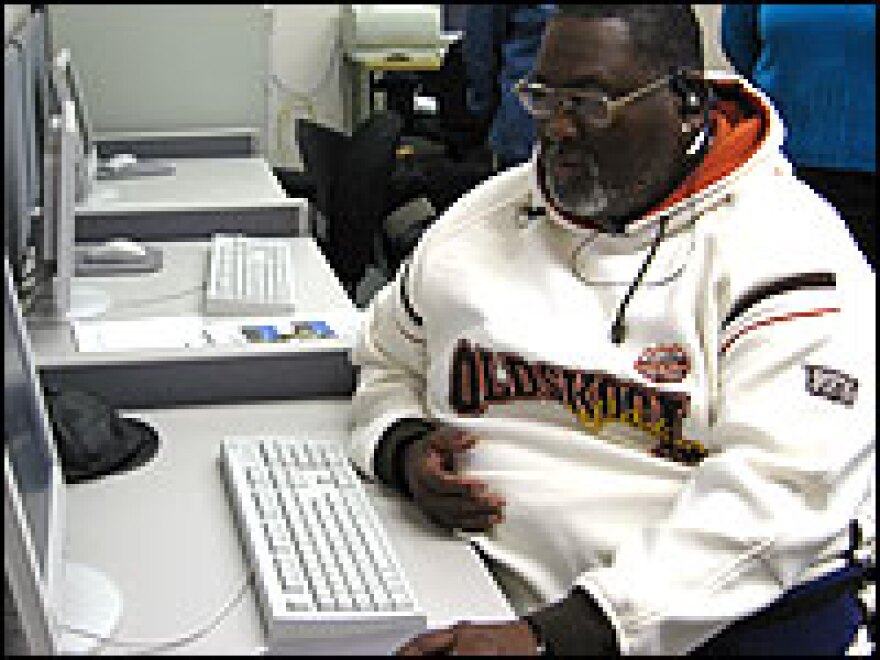
Recently, researchers went looking for the secret to happiness among men who've retired. They were surprised to find that happiness didn't depend on whether someone had a physical disability or a large income. The happiest retirees, according to a study in the current issue of the American Journal of Psychiatry, were those who said their life had a sense of purpose, and that they had activities that they really enjoyed.
In Cleveland, a separate experiment is under way to give people purpose and enjoyment as they reach retirement age.
The Murtis Taylor Center is trying to become a 21st-century version of the traditional senior center. Instead of being a place where people come for lunch, it's now a place where retirees come to plan their futures.
Bobbi Meredith, who runs the lifelong learning center here, says it's been hard to get older people to think they can change their lives.
"We found so often that the seniors who were coming in, particularly those who are 70, 75 years old and older, would come in and just be grateful to be alive," Meredith says. "We wanted to change that for them. We want them to know there's still more life left."
Meredith's center is one of six new lifelong learning and development centers that were set up around Cuyahoga County. About 1,200 people have taken the life-planning classes offered there in the past three years.
The centers are part of the Successful Aging Initiative, a project funded by the Cleveland Foundation, to change how the people in Cuyahoga County think about what it means to grow old.
Funding for the project recently ended, however, with mixed results.
The center found that older people have a hard time thinking about and planning for aging as a long stage in life. It appears older Americans have that in common with a larger segment of society, says Stacey Easterling of the Cleveland Foundation.
"We're in a frustrating time when people are looking at us and asking, 'Why are you talking about lifelong learning and development when we have issues like Medicare and other critical issues to address?'" Easterling says.
"The most frustrating thing about all this work is that we know that we're ahead of a curve," she says.
Cuyahoga County has no choice but to plan for an aging population, says Easterling. Nineteen percent of residents are older than 60. Outside the Sunbelt, only Pittsburgh has a higher percentage of residents over the age of 60. The numbers in Cleveland will grow, as they will everywhere in America.
"We really need to think about the fact that, as opposed to the earlier days when people might retire and have three to four years of active life, people now have 20 years of active life after retirement," says Bob Eckhardt, who works with Easterling. "What are they going to do with this whole new gift of years?"
Copyright 2022 NPR. To see more, visit https://www.npr.org.




